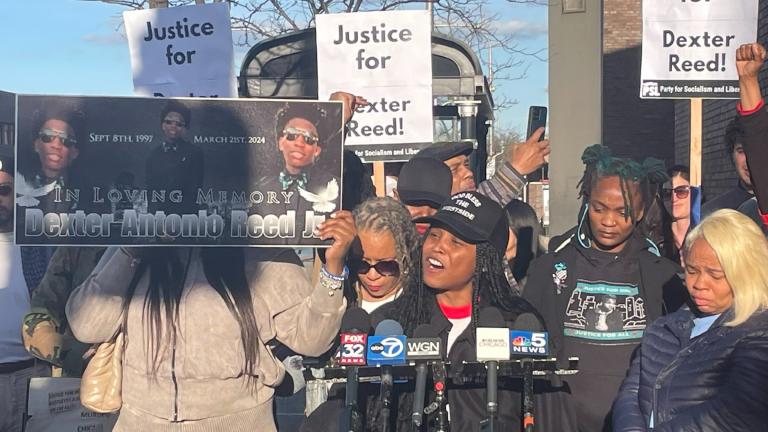From its founding as a trading post by a Haitian man to the Great Migration to today, Chicago owes much to its Black residents. The culture that makes our city so proud – art, cuisine, music, industry — is impossible to imagine without the contributions of Black Chicago. But since the 1980s, the city that helped shape the country’s first Black president has seen a steady stream of its Black residents flee.
According to the 2020 census, Chicago’s Black population fell nearly 10% over the last decade. That’s a loss of 85,000 Black Chicagoans – a loss that is leaving some communities hollowed out and the mayoral administration searching for ways to convince them to stay.
Stacey Sutton, associate professor of urban planning and policy at the University of Illinois Chicago, says that punitive fees and fines can exacerbate already existing inequities that are already a driving factor for lower to moderate-income Black households choosing to leave Chicago.
“When you receive a ticket, even if you went through the red light or you were speeding, you receive a ticket for $100. It’s extremely difficult to pay. And then it gets worse because of the doubling of that fine and the fees and so forth. So, you know what one of the things we argue is that leaving Chicago has a lot to do with the economic burden of tickets, but just also the lack of jobs and opportunity,” Sutton said.
Kendra Jackson Freeman, Vice President at the Metropolitan Planning Council, argues that any efforts directed at maintaining Black population in Chicago will have to battle back the effects of generations of mistreatment and disinvestment.
“We haven’t made Chicago a place that’s supportive of low- and moderate-income families … when you look at neighborhoods, particularly in the south and west sides, where there’s been decades and decades of sustained disinvestment on top of school closings, on top of … the pandemic and violence. It makes it very difficult for families to thrive,” Jackson Freeman said.
Sutton says there are programs aimed at reducing wealth inequality for individuals, but large-scale effect might require a shift in thinking for communities.
“If we really put an emphasis on community and collective ownership of enterprises, which many cities are doing and which Chicago has hinted at — if we actually invested in those programs, there would be more opportunities for more people to own the enterprises in their neighborhood, and that also creates jobs for people in the neighborhood. So it’s a very different thinking than supporting an individual entrepreneur to get uber-wealthy,” Sutton said.
Jackson Freeman says another shift in thinking must come in the depictions and understandings of majority Black neighborhoods.
“When you turn on the news and when you hear things about Black neighborhoods and people are getting shot, something closing down, the liquor store here, the school closing – that is not the narrative and the entirety of Black neighborhoods. They are strong, vibrant places. People make decisions to live there,” Jackson Freeman said.
And, she says, the people in those neighborhoods deserve the same attention, care, and services that other communities take for granted.
“I don’t want to have to go to another neighborhood to get those amenities, they should be here. And how do I become a part of fighting for that in my neighborhood?”








